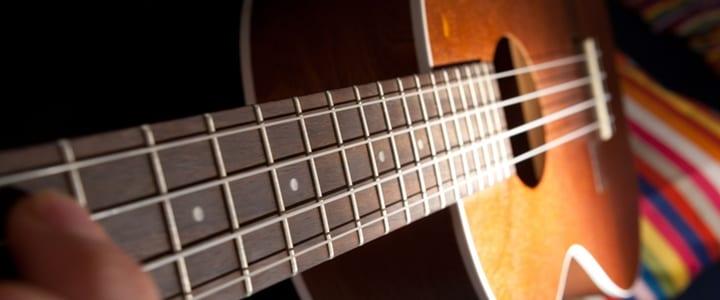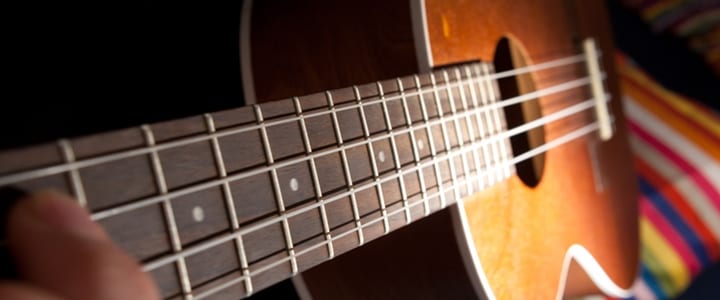Stringed instruments can be intimidating, especially to new musicians. Luckily, the ukulele is a small, cheap, and easy gateway into more advanced instruments. Music teacher Andrew C. explains just how simple ukulele for beginners can be…
Music is often described as a universal language, similar to mathematics. Learning any instrument provides you with a lifetime of fulfillment, happiness, and peace. It also bestows the power of universal communication, which is not limited by borders, race, age, or culture. However, with the musical language, many different instruments exist as vehicles of communication.
Stringed instruments are extremely popular in every culture. For any student who embarks on this particular musical journey, the ukulele is the perfect instrument for a few great reasons, especially if you want to eventually move to the guitar.
1. Ukuleles Come in Five Different Sizes
First, the ukulele comes in five distinct sizes. From smallest to largest, they are the pocket ukulele, the soprano, the concert, the tenor, and the baritone. You have lots of options to choose the perfect variety to suit your hand size and preference.
A small child can comfortably hold and play the pocket or soprano in the same way that a full-sized adult can hold and play a tenor or baritone. In terms of portability, even the baritone is extremely convenient for traveling on foot, by car, or by plane.
2. Ukuleles Only Have Four Strings
Second, the ukulele only has four strings, unlike a six-string guitar, a five-string banjo, or an eight-string mandolin. This provides a refreshing sense of simplicity, both mechanically and conceptually, to many students.
At the same time, the range of creativity and musicality is not limited since most of the chords anyone will ever play, only contain three or four notes each.
3. Ukuleles Are Tuned Like a Guitar
Third, the strings are actually tuned identically to the four high-pitched strings on a guitar. This means that as students are learning chord shapes and scale patterns on the ukulele, they are actually learning how to play the same shapes and scales on the guitar.
Many varieties of chords and scales on the guitar only incorporate the four high strings. In fact, many of my ukulele students spend their time learning songs that are written and played with the guitar.
4. Ukuleles Are in the Easiest Key
Finally, the four strings are centered around the easiest, most understandable key in all of music, the key of C major. This means that the first time you are exposed to the concepts of a major scale, a key, and how chords are constructed, the focus stays primarily on notes that only come from the white piano keys.
The result is that every note is simply named after one of the first seven letters in the alphabet, and you don’t have to immediately learn sharp or flat notes. This provides a very understandable atmosphere when learning notes, scales, and chords, for the first time.
As an experienced professional musician, I have grown to appreciate these valuable characteristics of this instrument. I believe it is the perfect first stringed instrument for anyone, especially for children and anyone who has never before been exposed to the language of music.
 Post Author: Andrew C.
Post Author: Andrew C.Andrew C. teaches a wide variety of stringed instruments, including banjo, guitar, and ukulele in Henderson, NV. He earned a music degree in Los Angeles and enjoys playing Motown and R&B-themed shows at Las Vegas resorts. Learn more about Andrew here!
Photo by phip_s
Interested in Private Lessons?
Search thousands of teachers for local and live, online lessons. Sign up for convenient, affordable private lessons today!

Megan L.





